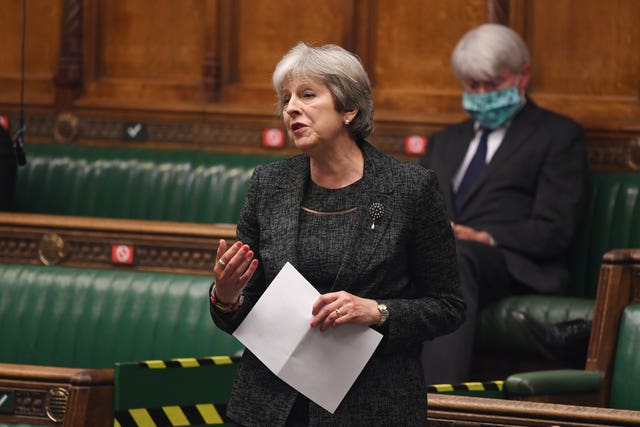Boris Johnson insisted Nato did not want a new Cold War with China, but acknowledged it did pose “challenges” for the Western alliance.
The Prime Minister travelled to Brussels for a meeting of Nato leaders, with China and Russia two of the main issues facing the alliance.
Arriving at the Brussels summit, Mr Johnson said: “I don’t think anybody around the table today wants to descend into a new Cold War with China.
“I don’t think that’s where people are.
“I think people see challenges, they see things that we have to manage together.
“But they also see opportunities and I think that what we need to do is do it together.”
US President Joe Biden will meet Vladimir Putin in Geneva on Wednesday and Mr Johnson said he would be taking some “pretty tough messages” to the Russian leader.
Looking forward to welcoming all 30 leaders to our #NATOSummit at this pivotal moment. We will agree the ambitious #NATO2030 agenda to chart the course over the next decade & beyond. In an age of global competition, we stand strong together as a transatlantic family. pic.twitter.com/vKFT6RRoLm
— Jens Stoltenberg (@jensstoltenberg) June 14, 2021
“I’m always hopeful that things will improve with Russia but… I’m afraid that so far it’s been pretty disappointing from the UK point of view,” Mr Johnson said.
“When I saw President Putin I made that very clear, I said ‘Look, you know, we’re ready to do things differently, we are ready to try to have closer relations but you have got to change the way you behave’.
“You’ll remember what happened at Salisbury where innocent members of the public faced the poisoning from Novichok, one woman tragically lost her life.
“That’s no way to behave. Nato allies stood by Britain then and I know that President Biden will be taking some pretty tough messages to President Putin in the course of the next few days.”
Mr Johnson is expected to use the meeting to highlight the way the Covid crisis was exacerbated by security threats – including cyber attacks on the healthcare systems of some alliance members.
He will also back the modernisation programme instituted by Nato Secretary-General Jens Stoltenberg, saying the alliance must be prepared to face down the challenges of the future.
Ahead of the meeting, Mr Stoltenberg said relations with Russia are at the “lowest point” since the end of the Cold War.

He said there is a “pattern of Russian behaviour” from cyber attacks through to the willingness to use military force against neighbours such as Ukraine and Georgia.
“We see attempts to meddle in our political democratic processes, to undermine the trust in our institutions and efforts to divide us. We have to take that very seriously,” he told Times Radio.
“We need to strengthen our cyber defences, we need to exchange intelligence, we need to be vigilant and aware of all these different tools of aggressive actions, military and non-military.”
Meanwhile, Defence Secretary Ben Wallace suggested former prime minister Theresa May would be an “excellent” candidate to succeed Mr Stoltenberg when he steps down next year.




Comments: Our rules
We want our comments to be a lively and valuable part of our community - a place where readers can debate and engage with the most important local issues. The ability to comment on our stories is a privilege, not a right, however, and that privilege may be withdrawn if it is abused or misused.
Please report any comments that break our rules.
Read the rules here